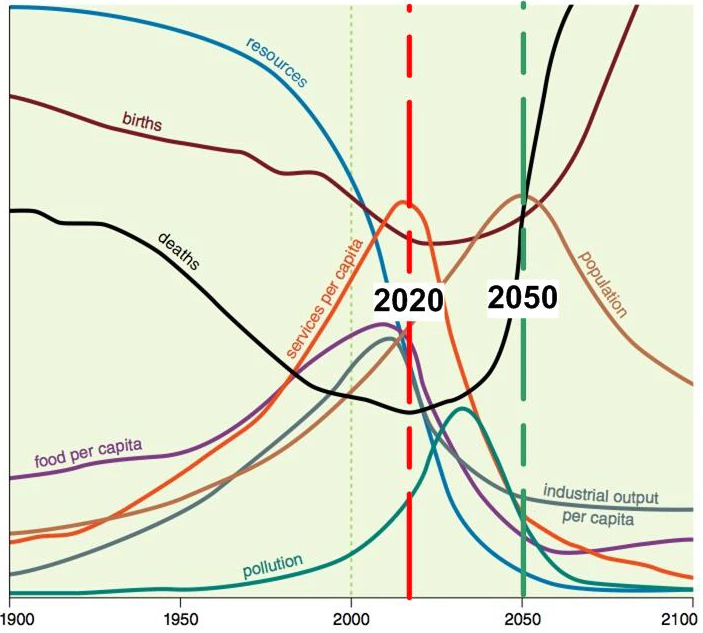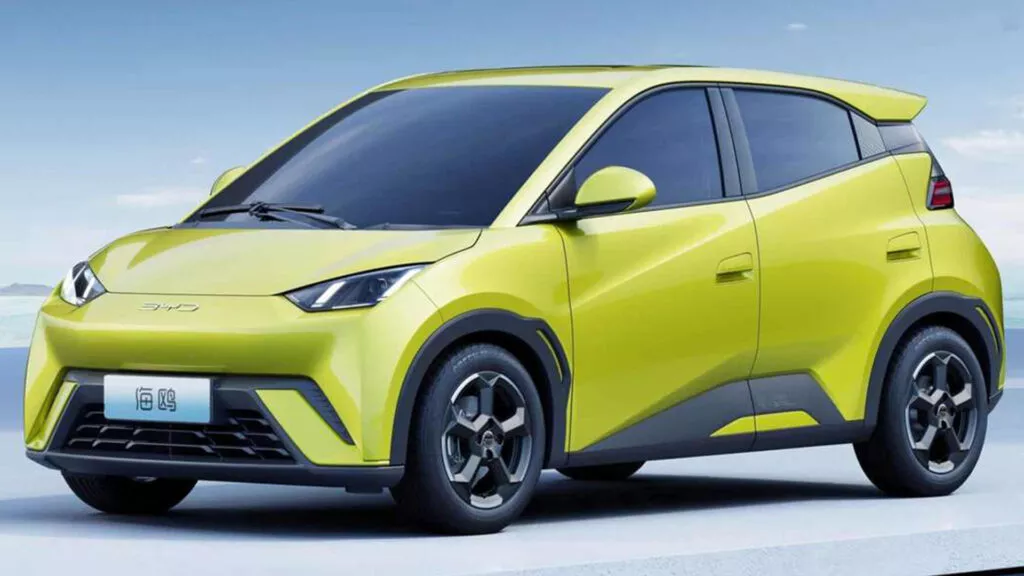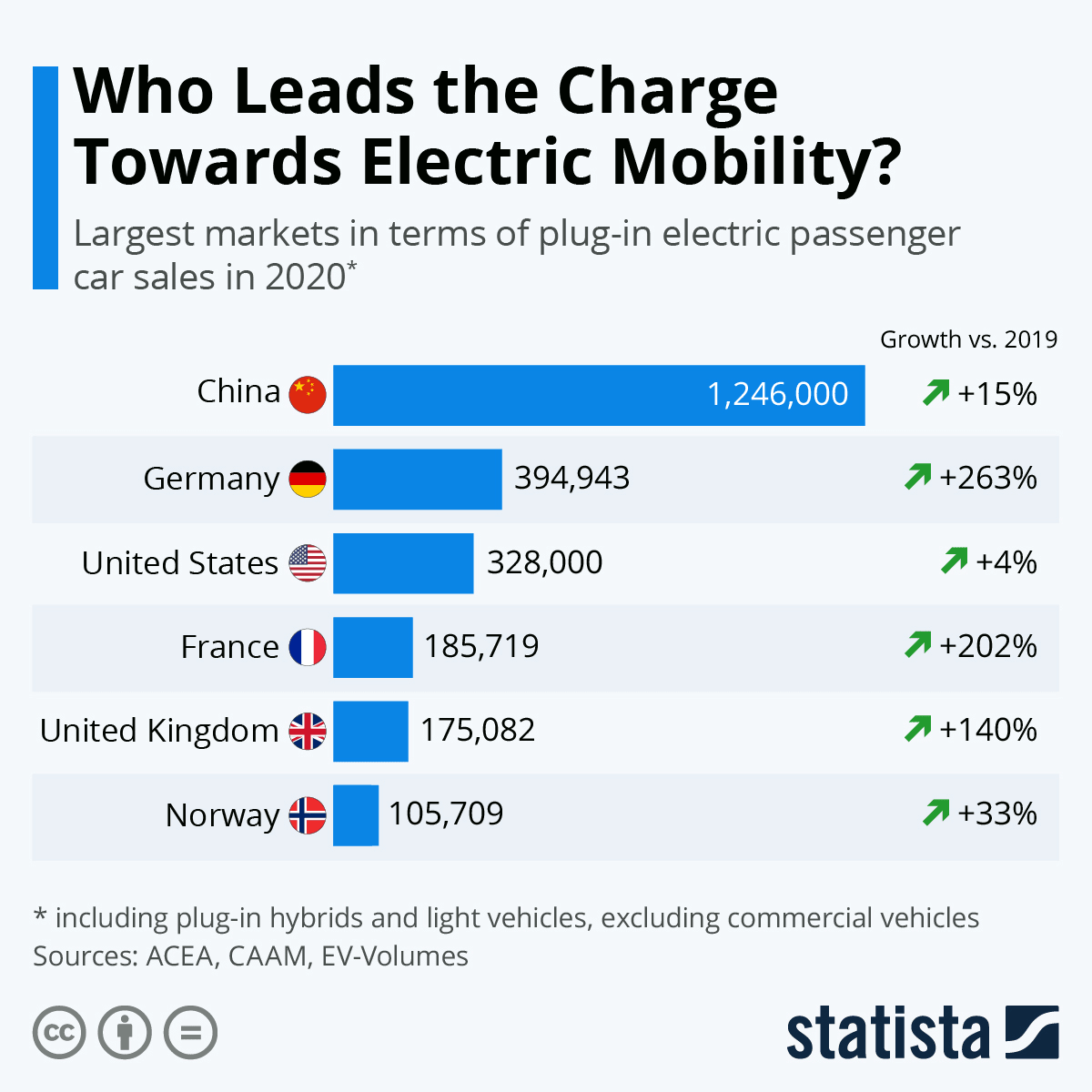The American empire is now in essentially unstoppable decline. Certainly there are things that could be done to stop it, but they will not be done, much as the British had to avoid WWI and not take profits by sending industry to the US.
(This is the first article on the state of the world, as promised in last year’s fundraiser.)
Everyone knows about comparative advantage, but what doesn’t get talked about is absolute advantage. In absolute advantage you have something people need that they can only get from you.
This can be weapons. It can be jets. It can be advanced computers. It can be the capital equipment (like lithography machines used to create semiconductors) used to make other things. Sometimes it can be a resource, like oil.
The USSR was competitive with the America and its satrapies when it could still offer most of what other nations wanted. They could shop at the West store or the USSR store and get jets and weapons and dams and electrical networks and so on. By the 70s this had started to come apart, and in the 80s their failure at microcomputers was starting to really hurt, plus their domestic economy was in serious trouble.
So from somewhere in the late 70s to early 80s, and certainly after the collapse of the USSR, if you wanted jets, good weapons, computers, internet and so on, you had to go to the US and its allies: or rather, its satraps. There were American jets, or there were European (Airbus) jets, and so on.
Starting in the 80s, but really taking off in the 90s, China began to really industrialize in the standard way: start at the bottom of the chain and sell to the West. They moved up the chain very fast.
For example:
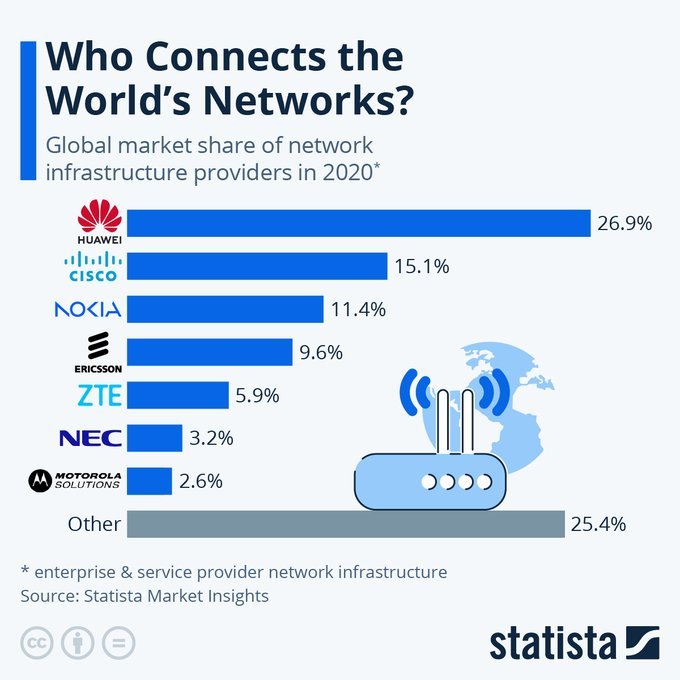
Huawei and ZTE are both Chinese.
The numbers above are worse than they look, because Huawei 5G is banned in much of the West. So really, Huawei is dominant in much of the developing world (the South.)
China now has a domestic jet industry. It isn’t quite up to snuff, but within ten years it will be. The latest Huawei phone, post sanctions, was made with domestic chips and outperforms Apple and Samsung on some important metrics.
So, let’s move to the important charts. The world in 1990, right after the collapse of the USSR.
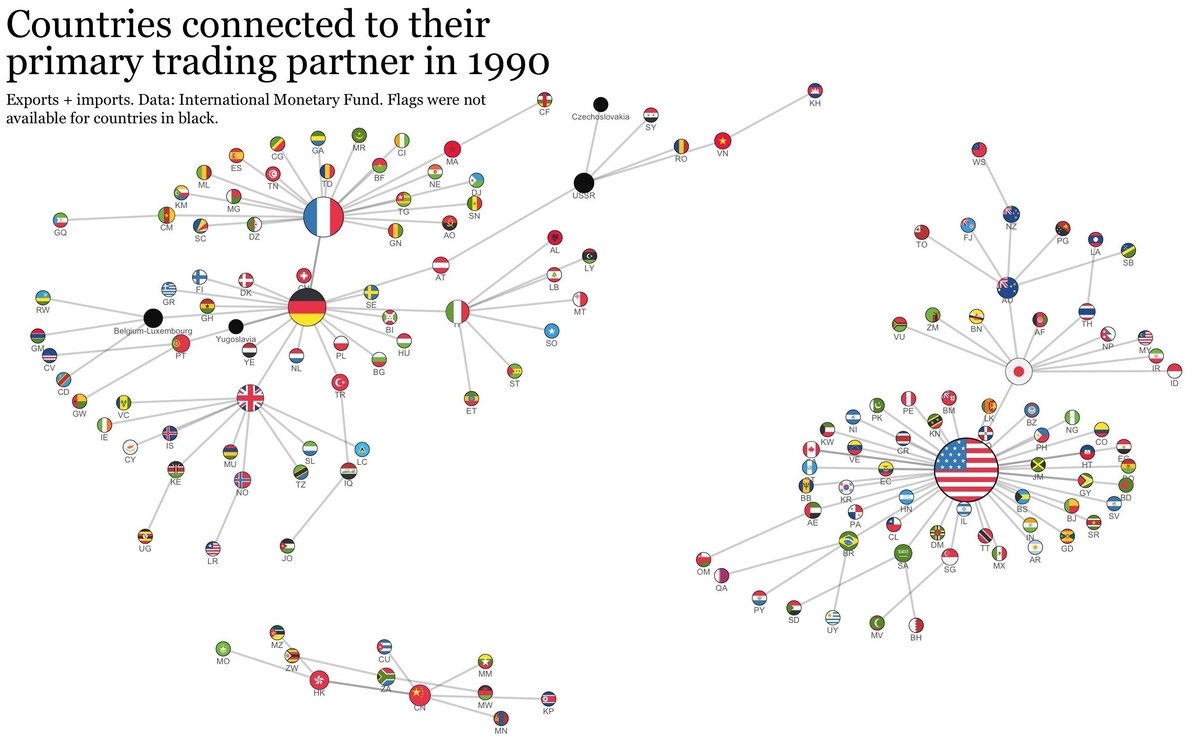
The world in 2020:
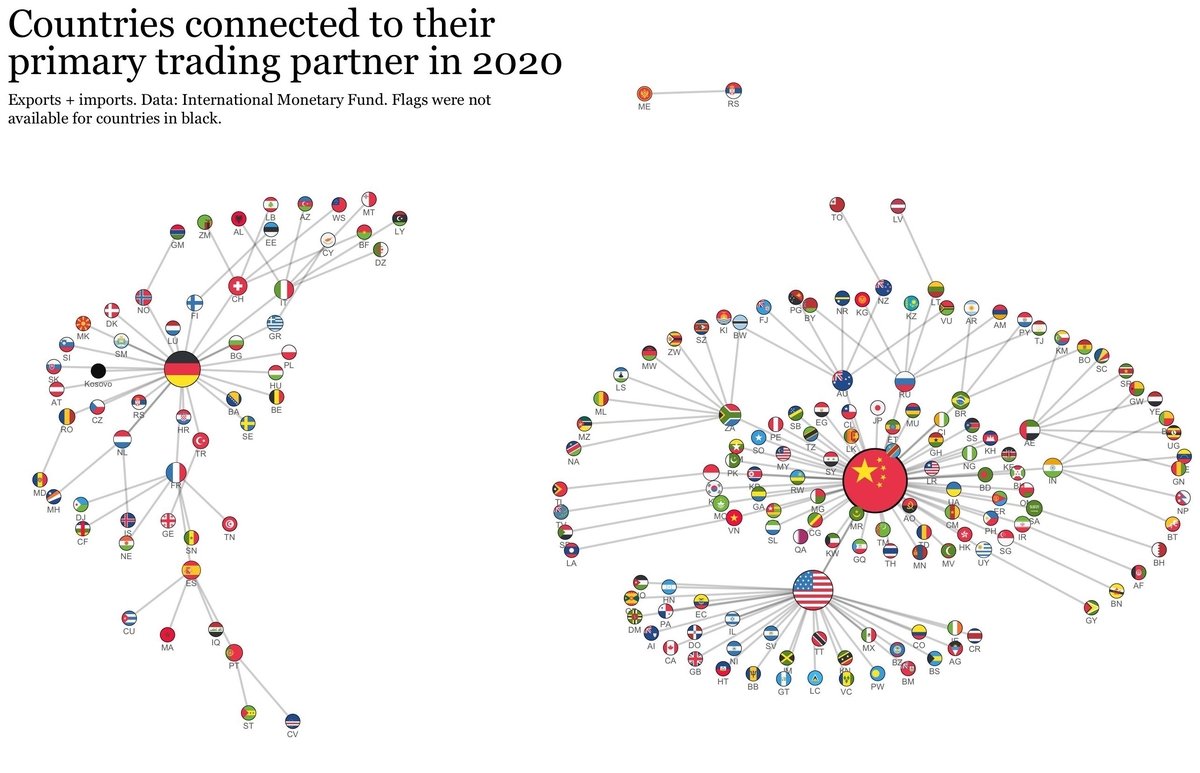
China is more dominant than the US was in its prime. (Well maybe not in 1946.)
Now this sort of thing is a leading indicator. Countries who were dominant are able to control more of the world’s resources than they deserve for some time after they lose their dominance.
Be clear, the US has LOST its dominance already. It’s all over except for the shooting. It doesn’t look or feel like that because of generations of accumulation and because the dollar is used for most world trade.
But those are lagging indicators. Britain’s pound was the main instrument of trade for decades after the US had overtaken it industrially.
This time it’s going to happen faster, because the US has abused its central position in financial networks in ways other countries, like Russia and China won’t tolerate.
Now, understand clearly, Western prosperity is based on commanding more of the world’s resources because everyone had to get what they needed from the US and its satrap (well, and the whole imperialism and military thing, but that’s another article.)
Since China now offers almost everything the West does, at better terms, they will come to command those resources. It’s that simple, though that doesn’t mean the road will be smooth. This will be an Age of War and Revolution, and civilization collapse, especially as this isn’t a normal changeover because of climate change and ecological collapse.
Within the West we are already seeing the US cannibalizing its satrapies. Germany had to have cheap oil and natural gas to run its industry and European patents are lagging, badly. Europe’s garden will go, and go relatively quickly. The Chinese will dominate the EV market, eat Airbus and Boeing alive and bypass European control of the machines which make semiconductors.
The main industry the West seems to still have a dominant lead in is biotech, but the Chinese will get there.
Japan and South Korea will do better because both are keeping up in scientific innovation, but my bet is that South Korea will peel off into the Chinese sphere at some point, economically they already have. I’m less sure about Japan, but they’d be wise to do so.
As for Europe, well, for twenty years I’ve been warning them they had to regain their independence and forge their own path. Most of Eastern Europe should never have been allowed into the EU or NATO. The EU should have built its own army and left NATO. And yeah, they should have done everything necessary to keep good ties with Russia, which would have been easy, because until fairly recently Russia wanted to be a European nation.
They did none of this, their rate of scientific advancement is abysmal outside of a few areas and they’re toast.
Donors and subscribers make it possible for me to write, so if you value my writing, please DONATE or SUBSCRIBE

